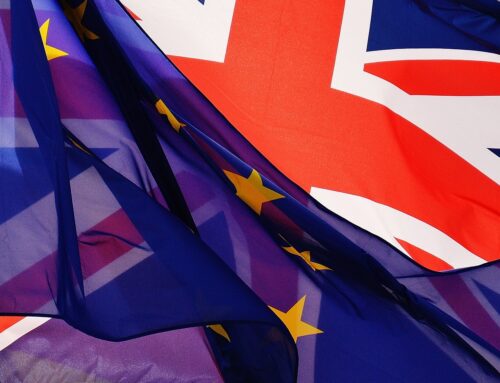
by David Gow
Editor of sceptical.scot and Social Europe. Former European Business Editor and Germany Correspondent at The Guardian.
29th May 2019
This article was first published on sceptical.scot
The proposed merger between car-makers Fiat-Chrysler and Renault highlights what is likely to be a growing trend in Europe over the next five years: devising and implementing an EU-wide industrial policy to take on the twin challenge of American and Chinese striving for corporate hegemony.
Industrial policy in the UK in recent years has been little more than tokenism on the part of Conservative chancellors, George Osborne or Philip Hammond, towards the (de-industrialised) north (of England). It is still widely derided among orthodox politicians and economists as “picking winners”. But in mainland Europe it is making a strong comeback after a series of intermittent attempts to revive it. It is likely to be a core policy of the next European Commission (2019-2024).
This is partly in response to that Sino-American challenge via ‘Big Tech’ (Facebook, Amazon, Huawei and the like) and related manufacturing technologies (driverless cars, lithium batteries, robotics) – often summarised as digitalisation. Only five of the 40 biggest global companies and five of the top 100 unicorn firms ($1bn start-ups) are European. Most European industrial groups are very old. There are no modern-day equivalents to, say, Apple or Alibaba. Hence a driving force behind the Fiat-Renault merger is, precisely, ‘gigantisme’.
But the new European industrial policy (or strategy) goes beyond the determination to keep skin in the game and refuse to be muscled off global markets by the US and China. Or, indeed, to impose fair and effective taxation upon global corporate giants. Increasingly, it is viewed as a response to the rise of economic nationalism and populism. Or, as Bruno Le Maire, French finance minister, told Politico recently: “For the first time in European history, we will have to face the risk of a total dislocation of the project. And if we want to be efficient in the fight against populism and the rise of nationalism, we need two things: decisions and research.”
Equally, EU strategists want to build on the perceived leadership of Europe in fighting the climate emergency and moving to the decarbonised economy. Ironically, given his exhausting and exhaustive role as chief EU Brexit negotiator, Michel Barnier has recently come up with a proposed “sustainability pact” (green new deal variant) to complement the (straitjacketed) stability & growth pact. This foresees €180bn extra investment annually just to meet the EU’s commitments under the 2015 Paris Agreement.
Five more years
Barnier is, perhaps, one of the ‘dark’ contenders to be the next Commission president after Jean-Claude Juncker – if the current front-runner, Manfred Weber, is discarded because of the relatively poor showing of the centre-right EPP group in the recent European parliament elections. Another contender is Margrethe Vestager, a Danish Liberal who is current competition commissioner and architect of the decision to block the merger of the rail businesses of France’s Alstom and Germany’s Siemens.
Her decision has prompted an even more determined push behind the EU’s industrial policy. Le Maire has teamed up with Peter Altmaier, German economic minister, to promote the idea of national or, rather, European champions, arguing that a Franco-German group, say, should research and produce new electric batteries rather than rely on the Chinese or Koreans. “My choice is quite clear: I want a free, independent and sovereign Europe,” he said in that Politico interview.
The pair, both on the political centre-right, produced in February a “Manifesto for a European Industrial policy fit for the 21st century” that is designed to retain Europe as an industrial powerhouse in 2030. In part, it is a riposte to Beijing’s Made in China 2025 strategy that foresees virtual self-sufficiency in industrial production. But, aside from proposing huge investment in innovation (AI and so on), it also urges substantial loosening of EU state aid rules (are you listening Jeremy Corbyn?) and, among other things, (protectionist) screening of foreign direct investment (FDI) flows.
The manifesto is not without its critics – nor is Altmaier’s separate paper on German industrial strategy that wants manufacturing to account for a quarter of gross value-added by 2030 and says the survival of, say, Volkswagen and Deutsche Bank is a vital strategic interest. The old-style “ordoliberal” economists see it as manipulating the market while others see it as too conservative and even nationalist.
But Peter Bofinger, a social democratic economist who recently left the official German council of economic advisors (Sachverständigenrat), has urged a common European approach to, say, electro-mobility or AI. He backs a green industrial policy for Europe, citing fellow economist Paul de Grauwe (of the LSE) on a model for financing such a policy based upon bonds issued by the European Investment Bank that can be bought by the European Central Bank. The outgoing Commission has separately started investing in “cluster collaborations” in segments like nanotechnology and, indeed, batteries (see Vestager response here).
Some of these issues are being grasped and debated by Scottish economists/commentators such as Common Weal (see here). But, amid all the clamour over constitutional matters, little or nothing of this vital strategy has seeped into the mainstream political debate – apart from the odd nod to “green new deal.” Here is another instance where, if it wants to be serious about Europe and its European credentials, Scotland needs to raise its head from self-inspection and join in.
Further reading:
The Future of Europe, SCER, 2019
Franco-German battery plans, Euractiv, May 3 2019
‘World’s first raspberry-picking robot’ a spinout from University of Plymouth, goes on trial in the UK as the farming industry faces rising labour costs and a reduced supply of East European workers: Guardian 26 May 2019






